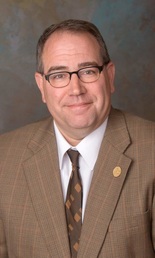Back to Issue 6
Rodd Whelpley
Now We Are 50Believing baseball happens between pitches, I
sing the workman measures before the genius chorus, every day swelling the progress towards my Mother said (when I sounded out syllables so slow that sense was gone before full stop – Something like ‘Jesus knew that that would be his end.’ – “That that.’ ‘That that?’) “Any word can follow any other word,” Mother said so any man follows any other? Jesus, the swelling of the measures, the notes upon The notes my father wrote at five a.m., tucked in to my school lunch beneath the bread so ‘Good luck on Spelling test’ red inked backwards on bologna, Jesus. Geez Us still walking chalk lines hand in paw with a silly old bear whispering maxims like Time is the enemy of the seller. Does this say to Anyone relegated in his cellar when everyone’s a sleep puzzling if father still remembers my name, if again We are strangers over breakfast wondering, safely how’d the Tribe do on the coast last night. If We Knew Each Other BetterIf we knew each other better, then I would tell you about the third grade field trip to Beatty’s Flower Shop on South Broadway nearly forty years ago, or yesterday. I’d hold my hands up near your face, make them stumpy, like old man Beatty’s, try to make you see the green pith mashed in the wrinkles of my fingers so they smell not like blossoms but like the earthy stems I clutched all day. I could, like a storyteller, raise my tone an octave and decrease the decibels as I describe (as though I just learned it) the difference between annuals and perennials, the secrets of pansies and how to make snapdragons sing. If we were better than acquaintances, I could joke with you, toss something crucial, casual, like how old man Beatty said right there on the walkway to his shop he could show us what’s stronger than that Russian Alekseyev or even Charles Atlas. I could point with my toe at a clutch of grass busted through the concrete. I could smile wide at the eight-year-old skeptics. “Look how stubborn,” I’d say, “Once you know the universe wants for you to live.” My Dad ForgetsMy dad forgets. Forgets he has already shown us my mother’s grave. Forgets my son’s name, calls him sometimes by mine, taps his head, asks the old question: “Do you play ball, son?” He shows us the tennis ball, softball, golf ball he’s placed on my mother’s grave: A custom at the new cemetery in our town. Later, he soft tosses the boy a Titleist he’s discovered on a headstone “Aint that crazy?” he asks. Then says, “Nice catch” “Do you play ball, son?” My dad forgets. Forgets he has already eaten one lunch today. Forgets this morning we have visited the old cemetery, where his wife is not, but his mother is. He can’t say why his father is not buried by his mother – some circumstance I never knew and won’t. My father cannot find the grave of his father, convinced it’s near the plots of his dead in laws. How that would be, he can’t say why. My dad forgets. Forgets he is surly, unappealing, offensive in his approaches. Forgets that these people, in this town he has lived in his whole life are different people than the people he thinks have remained in this town his whole life. They do not think of him as the slick second baseman, the quarterback, the happy-go-lucky who puts in the forty hours, gets a wink, a nod, a pass; talks away his tickets, because he’s steady, loyal, pays on time, has children good enough and has lived here his whole life. My dad forgets. Forgets any story he tells, he’s already told. Forgets he’s left car keys beneath the seat and that we’ve told him not to. This is his home, he says: “No one will take things from me here.” My dad wanders wall-to-wall, stopping, squinting at thumb tacked pictures in the plaster – my mother at seventeen, bathing at the lake; at twenty-two, with her young boys; at thirty dressed for work. My dad, puzzles at these new familiar vistas all around: This is his home. |
Rodd Whelpley grew up in Geneva, Ohio, and, even though he moved to Illinois 25 years ago, his writing has never shaken off northeast Ohio. ‘If We Knew Each Other Better’ arises from a third grade field trip to the now long gone Beatty’s Flower Shop in Geneva in the early 1970s. ‘My Dad Forgets’ references the two cemeteries in town, and ‘Now We Are 50’ begins and ends on a lament about the Indians.
Rodd took an MA in creative writing from Miami University in 1989. His poems have appeared in The Minneapolis Review of Baseball, Elysian Fields Quarterly, Illinois Times, Elm City Blues, One Sentence Poemsand Allegro. He has work forthcoming in Aethlon, Allegro and Antiphon. His novel, Capital Murder, came out in 2002. His day job involves managing an electric efficiency program for 33 cities in Illinois. |

